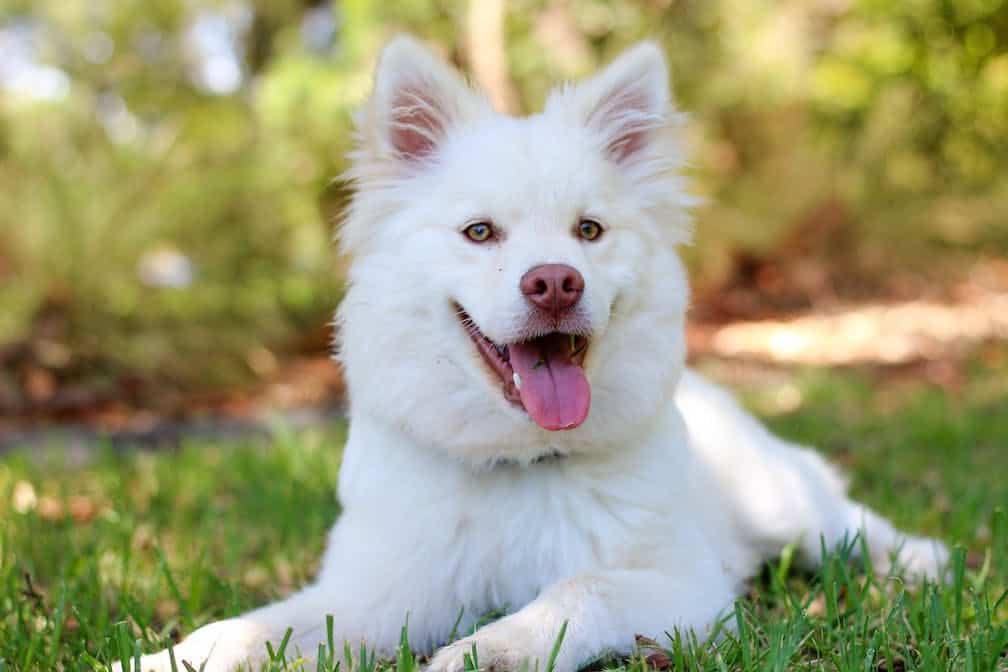Fleas are insects that require a host. That is to say, they hop onto warm-blooded animals and live out their lifespan of two to three months. So, when considering the seasonality of fleas, we must take into consideration the seasonality of the pest animals that carry them, and not only the fleas themselves. Here's how it works.
Before your dog or cat gets fleas, those fleas are brought into your yard on other animals. When those animals find a place to sleep on your property, they can drop eggs and flea dirt, which is the recipe for flea reproduction. The flea eggs hatch and larvae feed on the flea dirt. Flea dirt is the feces of adult fleas. It contains the blood that flea larvae require to survive. Larvae are not able to bite animals to get a blood meal. So they rely on the blood drawn by adult fleas.
Larvae grow through three stages of development and begin to create a cocoon. Once inside the cocoon, they mature through their pupa stage, eventually becoming adults. They can stay in this cocoon for a short time or a long time, depending on whether or not a suitable host walks by. In their cocoon, fleas are protected from many weather conditions that would normally kill them. So they often go through winter in this stage. They're also protected from many insecticides when they're tucked away in their cocoons. It is the safest place on earth for a flea.
Temperature and moisture can affect how willing a flea is to break free of the safety of its cocoon and attempt to spring onto a host animal. So fleas don't spread as readily in the winter months. But, when a dog or cat lies down in a location where fleas have cocooned, it can give those fleas the warmth they need to hatch. They know that dogs, cats, and other warm-blooded animals will keep them warm even if it is cold outside. This is one of the ways an infestation can take root in your home during the winter months, assuming you have a dog or cat that goes in and out of your home. But, as you can probably imagine, it doesn't happen a lot. Most cats and dogs will not be looking for a place to lie down outside when it is cold. They'll get their business done and get back inside.
Another way a winter infestation can take root is when rodents bring fleas into your home. Mice and rats are strongly linked to flea infestations. These critters bring them in from the outside and introduce them to many locations within your home. As they run along walls, following the same routes over and over again, they can drop eggs and flea dirt into carpets. This can give developing fleas the ability to grow to their adult stage right inside your home. Mice and rats are also prone to creating nests inside furniture. This creates the conditions for adult fleas to be in common areas of your home. The problem is compounded when there is a dog or cat in the home because your pet can pick fleas up from secluded nesting areas and bring them right up onto your bed or couch.
While it is true that a flea infestation can begin at any time during the year, they typically increase in spring when everything outside your home is coming back to life and creatures of all shapes and sizes are becoming active again. All that activity increases the chances of fleas finding their way into your home. Before they do, consider investing in a residential pest control plan for your St. Louis home. Routine visits from a pest control professional can keep rodents and fleas from multiplying freely in your yard.
At Rottler Pest & Lawn Solutions, we offer the most advanced, year-round pest control service available. The barrier treatments we apply work to address a wide range of pests around your foundation perimeter and helps to prevent pests from getting into your home.
If you're currently dealing with a flea infestation, we can help with that too. We can apply treatments that will eliminate the adult fleas in your home. These products are residual, so they stay active to eliminate any fleas that fall from your pets or hatch in your home.
For more information or to schedule service, reach out to us today. We're here to help.


